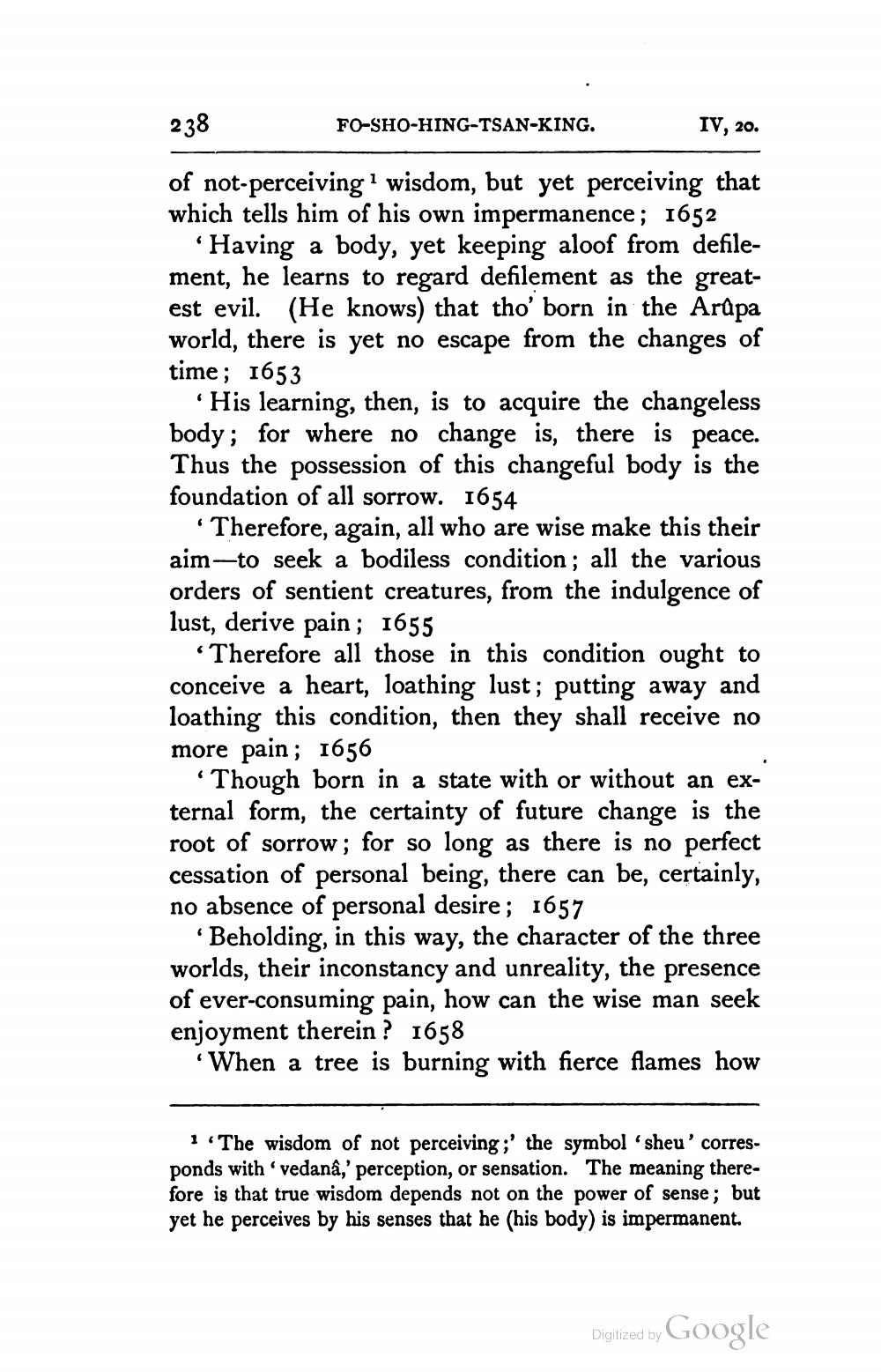________________
238
FO-SHO-HING-TSAN-KING.
IV, 20.
of not-perceiving wisdom, but yet perceiving that which tells him of his own impermanence; 1652
Having a body, yet keeping aloof from defilement, he learns to regard defilement as the greatest evil. (He knows) that tho' born in the Arupa world, there is yet no escape from the changes of time; 1653
‘His learning, then, is to acquire the changeless body; for where no change is, there is peace. Thus the possession of this changeful body is the foundation of all sorrow. 1654
Therefore, again, all who are wise make this their aim-to seek a bodiless condition; all the various orders of sentient creatures, from the indulgence of lust, derive pain; 1655
Therefore all those in this condition ought to conceive a heart, loathing lust; putting away and loathing this condition, then they shall receive no more pain; 1656
'Though born in a state with or without an external form, the certainty of future change is the root of sorrow; for so long as there is no perfect cessation of personal being, there can be, certainly, no absence of personal desire; 1657
Beholding, in this way, the character of the three worlds, their inconstancy and unreality, the presence of ever-consuming pain, how can the wise man seek enjoyment therein ? 1658
When a tree is burning with fierce flames how
1 The wisdom of not perceiving;' the symbol 'sheu' corresponds with 'vedana,' perception, or sensation. The meaning therefore is that true wisdom depends not on the power of sense; but yet he perceives by his senses that he (his body) is impermanent.
Digitized by Google




